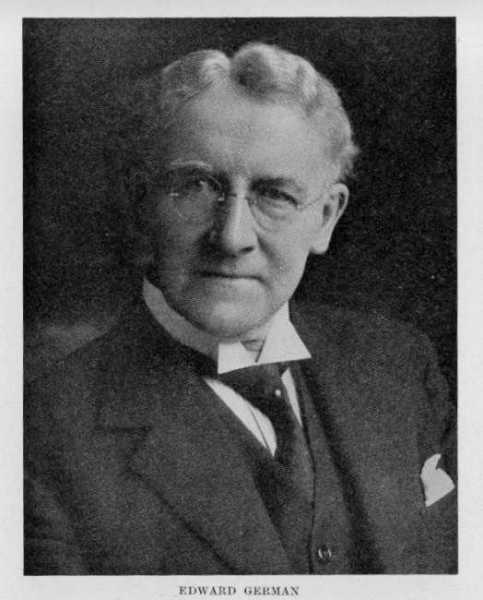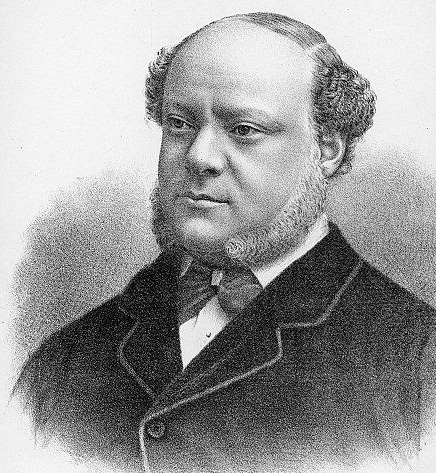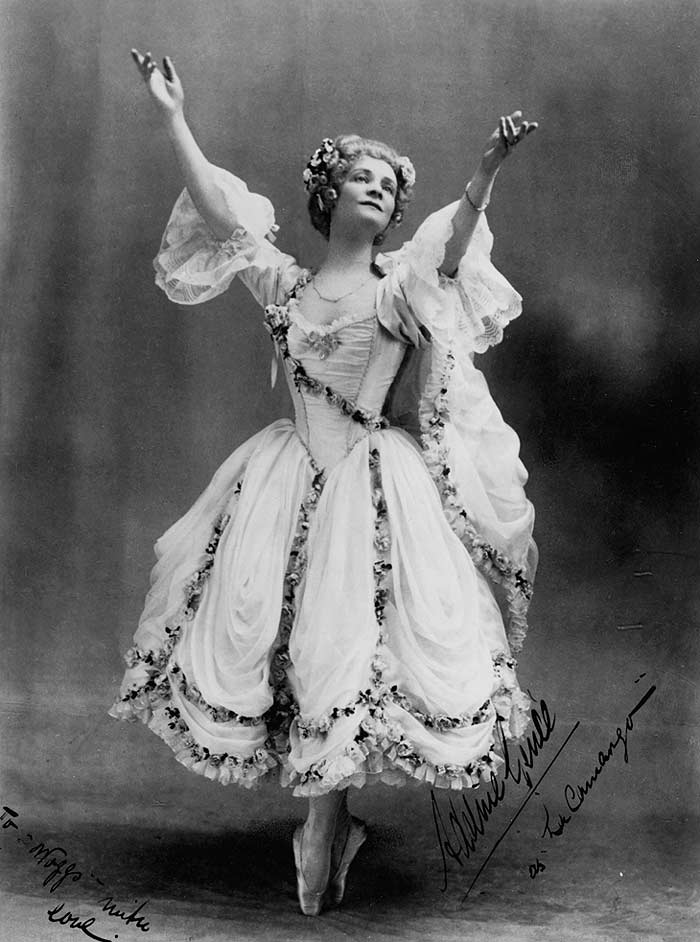|
Edward German
Sir Edward German (17 February 1862 – 11 November 1936) was an English musician and composer of Welsh descent, best remembered for his extensive output of incidental music for the stage and as a successor to Arthur Sullivan in the field of English comic opera. Some of his light operas, especially '' Merrie England'', are still performed. As a youth, German played the violin and led the town orchestra of Whitchurch, Shropshire. He also began to compose music. While performing and teaching violin at the Royal Academy of Music, German began to build a career as a composer in the mid-1880s, writing serious music as well as light opera. In 1888, he became music director of the Globe Theatre in London. He provided popular incidental music for many productions at the Globe and other London theatres, including ''Richard III'' (1889), ''Henry VIII'' (1892) and ''Nell Gwynn'' (1900). He also wrote symphonies, orchestral suites, symphonic poems and other works. He also wrote a considera ... [...More Info...] [...Related Items...] OR: [Wikipedia] [Google] [Baidu] |
Just So Songs
''Just So Songs'' is a collection of twelve poems from Rudyard Kipling's '' Just So Stories'' set to music by Sir Edward German in 1903. It consists of musical settings for voice and piano of "When the Cabin port holes", "The Camel's Hump", "This Uninhabited Island", "I keep six honest serving men", "I am the most wise Baavian", "Kangaroo and Dingo", "Merrow Down", "Of all the tribe of Tegumai", "The Riddle", "The First Friend", "There never was a queen like Balkis", and "Rolling Down to Rio". Publication history The work was originally published under the title ''Just So Song Book'' by Macmillan and Co. as well as Doubleday, Page and Co. in New York. Novello published the settings of "Merrow Down", "The First Friend", and "Rolling Down to Rio" individually in 1904. "The Camel's Hump" and "Rolling Down to Rio" proved to be particularly popular, especially the latter. Both had a number of arrangements produced several years later by the composer for various choral and part-song ... [...More Info...] [...Related Items...] OR: [Wikipedia] [Google] [Baidu] |
Ebenezer Prout
Ebenezer Prout (1 March 1835 – 5 December 1909) was an English musical theorist, writer, music teacher and composer, whose instruction, afterwards embodied in a series of standard works still used today, underpinned the work of many British classical musicians of succeeding generations. Early career Prout was born in Oundle on 1 March 1835. His father was a clergyman and he was the nephew of the water-colour painter Samuel Prout. His father taught him music and he studied piano under Charles Salaman, but was otherwise self-taught. He attended the University of London intended for a career as a scholar, but chose to follow one in music through his love of it.Henry Davey, revised by Anne Pimlott Baker. 'Prout, Ebenezer' in ''The Oxford Dictionary of National Biography'' (2004) ... [...More Info...] [...Related Items...] OR: [Wikipedia] [Google] [Baidu] |
The Times
''The Times'' is a British daily national newspaper based in London. It began in 1785 under the title ''The Daily Universal Register'', adopting its current name on 1 January 1788. ''The Times'' and its sister paper '' The Sunday Times'' (founded in 1821) are published by Times Newspapers, since 1981 a subsidiary of News UK, in turn wholly owned by News Corp. ''The Times'' and ''The Sunday Times'', which do not share editorial staff, were founded independently and have only had common ownership since 1966. In general, the political position of ''The Times'' is considered to be centre-right. ''The Times'' is the first newspaper to have borne that name, lending it to numerous other papers around the world, such as '' The Times of India'', ''The New York Times'', and more recently, digital-first publications such as TheTimesBlog.com (Since 2017). In countries where these other titles are popular, the newspaper is often referred to as , or as , although the newspaper is of na ... [...More Info...] [...Related Items...] OR: [Wikipedia] [Google] [Baidu] |
Richard III (play)
''Richard III'' is a play by William Shakespeare. It was probably written c. 1592–1594. It is labelled a history in the First Folio, and is usually considered one, but it is sometimes called a tragedy, as in the quarto edition. ''Richard III'' concludes Shakespeare's first tetralogy (also containing '' Henry VI, Part 1'', ''Henry VI, Part 2'', and '' Henry VI, Part 3'') and depicts the Machiavellian rise to power and subsequent short reign of King Richard III of England. It is the second longest play in the Shakespearean canon and is the longest of the First Folio, whose version of ''Hamlet'', otherwise the longest, is shorter than its quarto counterpart. The play is often abridged for brevity, and peripheral characters removed. In such cases, extra lines are often invented or added from elsewhere to establish the nature of the characters' relationships. A further reason for abridgment is that Shakespeare assumed his audiences' familiarity with his ''Henry VI'' plays, fr ... [...More Info...] [...Related Items...] OR: [Wikipedia] [Google] [Baidu] |
Richard Mansfield
Richard Mansfield (24 May 1857 – 30 August 1907) was an English actor-manager best known for his performances in Shakespeare plays, Gilbert and Sullivan operas, and the play ''Dr. Jekyll and Mr. Hyde (1887 play), Dr. Jekyll and Mr. Hyde''. Life and career Mansfield was born in Berlin and spent his early childhood on Heligoland, Germany, an island in the North Sea, then under British rule. His parents were Hermine Küchenmeister-Rudersdorf, a Russian-born operatic soprano, and Maurice Mansfield, a British London-based wine merchant (died 1861). His grandfather was the violinist Joseph Rudersdorff.Turney, Wayne S"Richard Mansfield", ''A Glimpse of Theater History'', accessed 20 May 2012 Mansfield was educated at Derby School, in Derby, England, where he studied painting in London. His mother took him to America, where she was performing, but he returned to England at age 20. Finding that he could not make a living as a painter, he gained some success as a drawing-room entert ... [...More Info...] [...Related Items...] OR: [Wikipedia] [Google] [Baidu] |
Alberto Randegger
Alberto Randegger (13 April 1832 – 18 December 1911) was an Italian-born composer, conductor and singing teacher, best known for promoting opera and new works of British music in England during the Victorian era and for his widely used textbook on singing technique. His compositions included ballets, masses and other church music, operas and numerous other vocal pieces. He also edited several collections of vocal music. He began his composing and conducting career in Italy, where he knew Giuseppe Verdi, but in 1854 he moved to London, which became his base for the rest of his life. From 1857 he conducted Italian opera at the St. James's Theatre and was professor of singing at the Royal College of Music and the Royal Academy of Music, retaining both posts for the rest of his life. From 1859 to 1870 he was organist at St Paul's Church, Regent's Park. Randegger served as musical director of the Carl Rosa Opera Company from 1879 to 1885, gaining a reputation for high quality producti ... [...More Info...] [...Related Items...] OR: [Wikipedia] [Google] [Baidu] |
Chertsey
Chertsey is a town in the Borough of Runnymede, Surrey, England, south-west of central London. It grew up round Chertsey Abbey, founded in 666 CE, and gained a market charter from Henry I. A bridge across the River Thames first appeared in the early 15th century. The River Bourne through the town meets the Thames at Weybridge. The Anglican church has a medieval tower and chancel roof. The 18th-century listed buildings include the current stone Chertsey Bridge and Botleys Mansion. A curfew bell, rung at 8 pm on weekdays from Michaelmas to Lady Day ties with the romantic local legend of Blanche Heriot, marked by a statue of her and the bell at Chertsey Bridge. Green areas include the Thames Path National Trail, Chertsey Meads and a round knoll (St Ann's Hill) with remains of a prehistoric hill fort known as Eldebury Hill. Pyrcroft House dates from the 18th century and Tara from the late 20th. Train services are run between Chertsey railway station and London Waterlo ... [...More Info...] [...Related Items...] OR: [Wikipedia] [Google] [Baidu] |
Dora Bright
Dora Estella Knatchbull (née Bright; 16 August 1862 – 16 November 1951) was an English composer and pianist. She composed works for orchestra, keyboard and voice, and music for opera and ballet, including ballets for performance by the dancer Adeline Genée. Biography Dora Bright was born in Stanton Broom, Sheffield, Yorkshire. Her father was Augustus Bright, a cutlery manufacturer and hardware merchant. He was a grandson of the jeweller and watchmaker Isaac Bright, who had been one of the founders of Sheffield's Jewish community, having settled there c. 1786. Augustus also served as a vice consul for Brazil,"Deaths", ''London Evening Standard, The Standard'', 4 November 1880 and as a captain of the Hallamshire Battalion, Hallamshire Volunteer Rifle Corps. He was an amateur violinist and in 1873 Dora, aged nine, performed alongside him in a benefit concert for his military unit. He died on 1 November 1880, at the age of 50. His business was inherited by his widow, but it fa ... [...More Info...] [...Related Items...] OR: [Wikipedia] [Google] [Baidu] |
Bayreuth
Bayreuth (, ; bar, Bareid) is a town in northern Bavaria, Germany, on the Red Main river in a valley between the Franconian Jura and the Fichtelgebirge Mountains. The town's roots date back to 1194. In the 21st century, it is the capital of Upper Franconia and has a population of 72,148 (2015). It hosts the annual Bayreuth Festival, at which performances of operas by the 19th-century German composer Richard Wagner are presented. History Middle Ages and Early Modern Period The town is believed to have been founded by the counts of Andechs probably around the mid-12th century,Mayer, Bernd and Rückel, Gert (2009). ''Bayreuth – Tours on Foot'', Heinrichs-Verlag, Bamberg, p.5, . but was first mentioned in 1194 as ''Baierrute'' in a document by Bishop Otto II of Bamberg. The syllable ''-rute'' may mean ''Rodung'' or "clearing", whilst ''Baier-'' indicates immigrants from the Bavarian region. Already documented earlier, were villages later merged into Bayreuth: Seulbitz ... [...More Info...] [...Related Items...] OR: [Wikipedia] [Google] [Baidu] |
Savoy Theatre
The Savoy Theatre is a West End theatre in the Strand in the City of Westminster, London, England. The theatre was designed by C. J. Phipps for Richard D'Oyly Carte and opened on 10 October 1881 on a site previously occupied by the Savoy Palace. Its intended purpose was to showcase the popular series of comic operas of Gilbert and Sullivan, which became known as the Savoy operas. The theatre was the first public building in the world to be lit entirely by electricity. For many years, the Savoy Theatre was the home of the D'Oyly Carte Opera Company, which continued to be run by the Carte family for over a century. Richard's son Rupert D'Oyly Carte rebuilt and modernised the theatre in 1929, and it was rebuilt again in 1993 following a fire. It is a Grade II* listed building. In addition to '' The Mikado'' and other famous Gilbert and Sullivan premières, the theatre has hosted such premières as the first public performance in England of Oscar Wilde's ''Salome'' (1931) and N ... [...More Info...] [...Related Items...] OR: [Wikipedia] [Google] [Baidu] |
Wimbledon School
Wimbledon most often refers to: * Wimbledon, London, a district of southwest London * Wimbledon Championships, the oldest tennis tournament in the world and one of the four Grand Slam championships Wimbledon may also refer to: Places London * Wimbledon (ecclesiastical parish) * Wimbledon (UK Parliament constituency) * Municipal Borough of Wimbledon, a former borough Other places * Wimbledon, New South Wales, Australia, see Georges Plains, New South Wales * Wimbledon, New Zealand, a locality in the Tararua District of New Zealand * Wimbledon, North Dakota, a small town in the United States Sport * Wimbledon RFC, an amateur rugby club * Wimbledon F.C., a former football club (1899–2004) * AFC Wimbledon, a professional football club * AFC Wimbledon Women, a women's football club * Wimbledon Dons, a former motorcycle speedway team * Wimbledon Hockey Club, a field hockey club based in Wimbledon * Wimbledon Stadium, a now-demolished dog and motor cycle racing track Other use ... [...More Info...] [...Related Items...] OR: [Wikipedia] [Google] [Baidu] |

.jpg)




.jpg)

